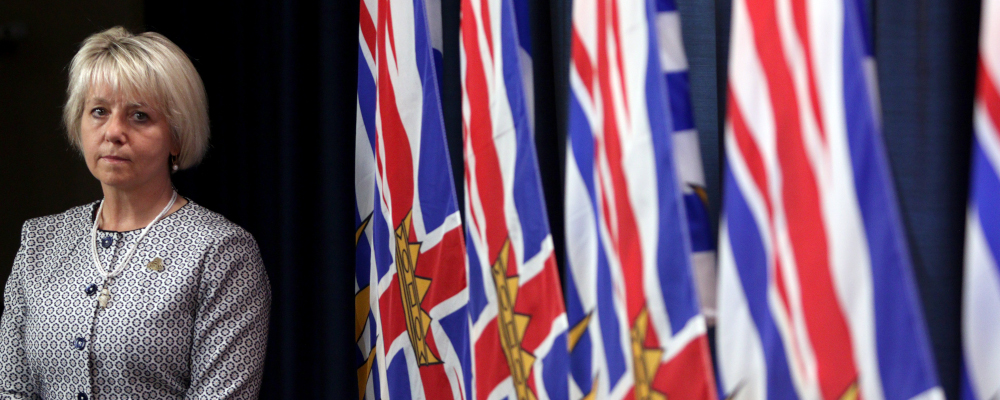British Columbia’s “temporary” health measures have once again become a little less temporary. On January 18, BC’s Provincial Health Officer Dr. Bonnie Henry announced that the government was extending events and gatherings restrictions until February 16. Dr. Henry also confirmed that there would be no relaxation of the province’s proof of vaccination policy.
When asked how long the proof of vaccination policy would remain in place, Dr. Henry stated that there have been no final decisions about its duration. Dr. Henry’s comments were followed by Health Minister Adrian Dix, who praised the proof of vaccination program as “popular” with British Columbians.
But British Columbians and Canadians should be concerned. Civil liberties advocates have rightly warned against the rationale for measures like vaccine passports. They change the nature of society from an open and liberal one to one where we are required to show “papers” to go about our daily lives, and as such, should be strictly time-limited. The government’s continued pushing back of endpoints for this policy is also troubling, especially because there is no indication of what criteria needs to be met in order for these restrictions to end for good.
In particular, the rationale for proof of vaccination policies has become more questionable now that vaccination is proving to be less effective against contraction and transmission of the Omicron variant. Yet, in light of this evidence, the government is not questioning the efficacy of this policy and is instead contemplating expanding it.
Minister Dix’s view that the policy is “popular” is hardly a justification for it because decisions about fundamental freedoms shouldn’t be made on the basis of public opinion. The very fact that this policy disadvantages a minority group—those with certain physical disabilities who cannot be vaccinated for medical reasons—is a clear example of why rights are not granted on the basis of popularity. John Locke long warned against the tyranny of the majority. It’s why we have a constitution after all.
This is in fact the biggest problem with B.C.’s vaccine passport: the failure to accommodate people who cannot be vaccinated for medical reasons. This near blanket application of the policy has led the legal charity, the Canadian Constitution Foundation, to call B.C.’s vaccine passport policy the “worst in Canada”. Now the B.C. vaccine passport policy is the subject of several legal challenges, including one by the CCF.
The CCF’s legal challenge to the vaccine passport policy takes issue with the lack of an effective, comprehensive, and accessible regime for medical exemptions. The CCF, along with three individuals, has brought a petition challenging the regime to the Supreme Court of British Columbia.
The first individual involved in this constitutional challenge is a teen girl named Erica. Shortly after getting her first dose of the COVID-19 vaccine, Erica developed a rare but well-documented adverse reaction: a form of heart inflammation called pericarditis. Erica’s physicians have told her not to get a second dose. Although pericarditis is on the PHO’s approved list of recognized grounds for a medical “deferral” from vaccination, the B.C. policy does not entitle Erica to a general exemption from the vaccine passport policy. Instead, Erica must apply to the Public Health Office for an exemption on an activity-by-activity basis. There is no option for a general exemption that would allow Erica to be treated the same as a fully vaccinated person. There is no timeline for approval of these activity-by-activity exemptions, so there is no guarantee that time-sensitive requests could be heard and approved. Something as minor as a last-minute dinner with friends, or as significant as attending a funeral, may not be approved by PHO in time for Erica to attend—if indeed either would be approved at all.
As a result, Erica is presumptively excluded from all vaccine-passport-required venues unless she obtains specific permission from the PHO to attend a particular venue or event. She is not treated as a free citizen entitled to direct her own life but is subject to the PHO’s veto power and government approval or denial of permission for each place she wants to go.
But Erica at least has the option to apply for an exemption. The other individuals in the CCF’s petition do not even have this ability.
The second individual in the petition, Sharon, also experienced an adverse reaction to her first dose of the COVID-19 vaccine. However, Sharon’s reaction is even rarer than Erica’s. She developed a neurological condition called brachial neuritis with scapular winging, which has caused extreme pain and partial paralysis of her right (and dominant) arm. Sharon consulted with multiple specialists, including neurologists and physiatrists (a kind of rehabilitation specialist doctor, often for treating functional impairments involving the nervous and muscular-skeletal systems) who believe that this condition was an adverse reaction to her COVID-19 vaccine. Sharon’s doctors are unable to assure her that her second dose will not result in a repeat or worsening of the nerve damage. Sharon is also now pregnant and concerned that any worsening or repeated nerve damage could impact her unborn baby, or her ability to care for her baby once born.
Despite all this, B.C. Public Health has nonetheless advised Sharon to get a second dose. Sharon’s condition is also not reflected on the PHO’s closed list of accepted reactions upon which a vaccine passport exemption can be granted. Even though Sharon’s treating doctors have warned her of the risk of further adverse reactions because of her medical condition, she is ineligible to even request an exemption.
The third individual involved in the CCF petition is a woman named Veronica, who has multiple complex and overlapping disabilities, has undergone over 15 surgeries for these disabilities, many of which had poor recoveries, and has had adverse reactions to various medications throughout her life. Because of her medical history, Veronica has declined to get vaccinated against COVID-19. This is a very personal trade-off that Veronica has had to make about her own health. Informed consent is a touchstone of the law in this area, recognizing that it is for the individual, not their doctor or the government, to decide how much treatment or risk to run in pursuit of reducing other risks.
However, Veronica’s situation is not reflected in the PHO list of medical exemptions, making her ineligible to even request an exemption. This is having an especially negative impact on Veronica, as she is mobility impaired. She relies on public swimming pools for three hours per day of swim therapy to reduce the chronic pain she lives with as a result of her disabilities. This swim therapy represents most of Veronica’s daily mobility. However, the vaccine passport policy now excludes Veronica from all public swimming pools. Without being able to do swim therapy, Veronica has increased pain and needs to take more nerve-blocking medication.
These are the people who are forced to live with a policy Minister Dix has seemingly justified because it’s “popular.” While it is mercifully true that adverse reactions to the COVID-19 vaccine are rare, and that conditions that prevent vaccination are uncommon, this does not mean such reactions and conditions do not exist, or that those who suffer from them can simply be brushed aside. And the popularity of the policy with the majority does not justify the harm the policy is doing to this small minority. Moreover, as a liberal society, we must make accommodations for these cases. The CCF and the individuals in the petition are eagerly awaiting the scheduling of the hearing for this challenge.
Recommended for You

The Notebook by Theo Argitis: Carney’s One Big Beautiful Tax Cut, and fresh budget lessons from the U.K.

Ginny Roth: How vacant liberal nationalism left Canada worse off than George Grant even imagined

Peter Menzies: Justin Trudeau’s legislative legacy is still haunting the Liberals

‘Our role is to ask uncomfortable questions’: The Full Press on why transgender issues are the third rail of Canadian journalism



